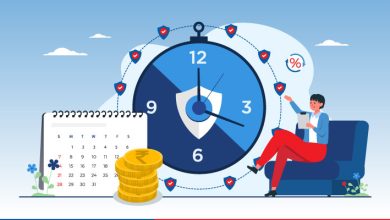Are Rewards Credit Cards Right for Everyone

When it comes to credit cards, many people are drawn to rewards programs. Who doesn’t love earning points or cash back for purchases they’re already making? The idea of earning something extra for spending money can feel like a win-win. However, rewards credit cards aren’t always the perfect fit for everyone. If you’re not careful, they can end up costing you more than the rewards you’re earning.
One factor that plays a big role in whether rewards cards are right for you is how you handle credit. If you tend to carry a balance from month to month, a rewards credit card might not be the best choice. Credit card debt consolidation could be a more effective strategy to get your finances in order first. If you’re not carrying a balance, though, rewards cards can be a great way to earn some extra perks without paying high interest rates.
Understanding Rewards Credit Cards
At first glance, rewards credit cards sound like a no-brainer. You use your card for everyday purchases, and in return, you earn points, miles, or cash back. Many of these cards offer attractive sign-up bonuses, special deals with certain merchants, or higher rewards for specific types of spending, like travel or dining out.
But here’s the catch: these benefits only make sense if you’re using the card responsibly. If you tend to carry a balance and pay high interest rates, the rewards might not offset the interest you’re paying. You could end up in a cycle where you’re not really benefiting from the card at all. So, before you sign up for that shiny new rewards credit card, think about your spending habits and whether you’re able to pay off the balance each month.
The Importance of Paying Off Your Balance
The real value of rewards cards lies in how you manage your credit. If you’re someone who regularly carries a balance, rewards cards may not be the best option for you. Credit cards typically have high-interest rates, and if you’re not paying off your balance in full each month, the interest charges can quickly outweigh the rewards you’re earning.
Let’s break it down with an example: Say you’re earning 1.5% cash back on all your purchases. If you carry a balance of $1,000 with an interest rate of 20%, you’re going to end up paying about $200 in interest over the course of a year. That’s a lot of interest just to earn $15 back in rewards. The math doesn’t add up. If you find yourself in this situation, it might be worth looking into credit card debt consolidation to lower your interest rates and pay down your balance faster.
The Annual Fee Factor
Another important consideration when deciding if a rewards credit card is worth it is the annual fee. Many rewards cards come with an annual fee, ranging from $50 to several hundred dollars, depending on the card and its perks. But here’s the trick: The rewards you earn each year should be greater than or equal to the cost of that fee if you want to benefit from the card.
For example, if a card charges a $95 annual fee, but you only earn $50 worth of rewards, you’re losing money. On the other hand, if you earn $150 worth of rewards, the fee becomes a lot easier to justify. So, when choosing a rewards credit card, always take a close look at how much value you can realistically get from the rewards compared to the cost of the annual fee.
Who Should Consider a Rewards Credit Card?
If you’re someone who pays off their balance in full every month, a rewards credit card can be a great way to earn free travel, cash back, or other rewards. By using your card for everyday expenses and paying it off each month, you can stack up the points without ever worrying about interest charges. This is especially true for people who have predictable monthly expenses that they can pay off, like groceries, gas, or online shopping.
But not everyone should go for a rewards card. If you’re someone who struggles with managing credit or frequently carries a balance, you’re better off focusing on getting your financial house in order first. Managing debt and paying down high-interest balances should be your priority before diving into the world of rewards cards. If this sounds like you, a credit card debt consolidation option could be the next step to help reduce your interest rates and put you in a better position to handle your finances.
What About the Rewards Program?
Rewards programs vary greatly between cards. Some offer cash back, while others offer travel miles, merchandise, or gift cards. It’s important to choose a rewards program that matches your goals. If you travel frequently, a card that offers miles and travel perks may be a great option. However, if you’re more interested in earning cash for everyday spending, a cash-back card may be the way to go.
Another thing to look out for is how you can redeem your rewards. Some programs are more flexible than others, and some reward structures can be tricky. Make sure you understand how to redeem your points, miles, or cash back and whether the program offers good value for the rewards you’re earning. If you have to jump through too many hoops or redeem your points for limited, overpriced options, the rewards may not be worth the hassle.
Final Thoughts
Rewards credit cards can be a great tool if used responsibly, but they’re not right for everyone. If you’re not careful, you could end up paying more in interest or fees than you’re actually earning in rewards. Before jumping into a rewards card, consider your spending habits, whether you carry a balance, and whether you’ll be able to make the most of the rewards program.
If you tend to carry a balance or struggle with debt, a rewards card might not be the best option until you get your financial situation under control. Consider looking into credit card debt consolidation or other ways to pay down your debt before jumping into the rewards game. And if you do decide a rewards credit card is right for you, make sure the annual fee is worth the rewards you’ll earn and that the card fits your lifestyle.
By aligning your financial goals with the right credit card, you can make your money work for you, not the other way around.




